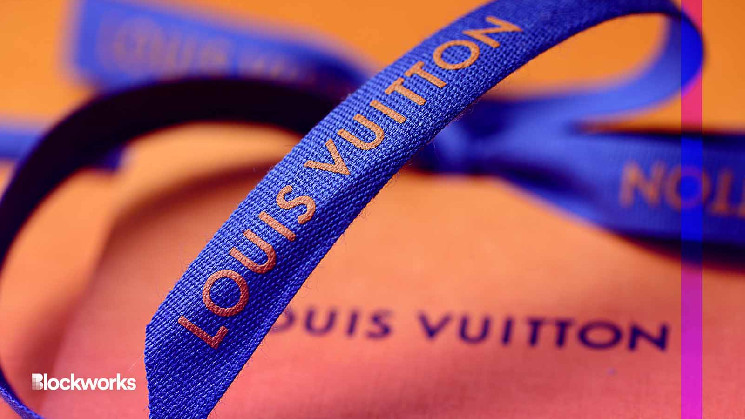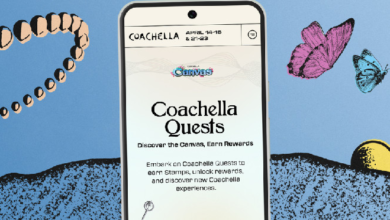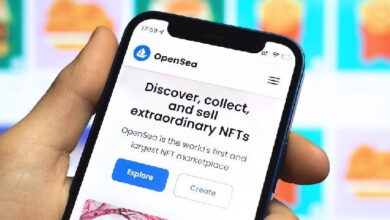You hate the word ‘phygital,’ but what if it’s from Louis Vuitton?

NFT
“Phygital.”
The definitely not cool word, blending “physical” and “digital”’ to describe real-life products tied to NFTs, describes the soon to be released Louis Vuitton branded “Treasure Trunks.”
It also makes Jason Yanowitz cringe. “Oh, God. I hate that word so much.”
While it tends to evoke profound discomfort among the familiar, the Empire podcast host admits on a recent episode (Spotify / Apple) he remains intrigued by the luxury brand’s take on pricey physical-to-digital NFTs.
Co-host Santiago Santos appears equally interested, saying “I don’t think I’ve ever bought anything from there, but maybe I will now.”
While “phygital” is cringey on a similar scale as a certain “#WAGMI” video, the fact that holders can not sell or give away the rare ‘soul-bound’ tokens seems like it could generate sufficient coolness, especially when paired with exclusive items from the luxury brand.
Percolating in the background
In an otherwise subdued market, “these are the catalysts,” Santos says.
It’s the sort of headline that would, in better conditions, stir the scene into an animated buzz. Instead, the story proceeds mostly unobserved in today’s bearish climes, he says.
“Mind you, this is the largest luxury conglomerate in the world.”
Santos recalls a previous highly successful foray into NFTs with Tiffany’s CryptoPunk pendants — another luxury brand owned by the LVMH conglomerate. “Louis Vuitton doing this, it’s a huge milestone” that pushes the space forward, he says.
“When you have a brand like that start doing this, it makes a big splash.” Other luxury brands are forced to pay attention, he says.
Why not just use a membership club?
From a consumer retention standpoint, Santos says the blockchain approach “makes a lot of sense.”
The value proposition of this particular ‘phygital’ is exclusive access to unique future products.
Yanowitz plays devil’s advocate, questioning why Louis Vuitton bothered to make this product as an NFT, being that it’s non-transferable. “Couldn’t they have just done this with a membership club?”
“Sure, they could,” Santos answers. “They very well could.”
While customers might not yet appreciate the notion of recording ownership on a public blockchain, Santos says the concept is primed to become more important.
He contrasts the advantages of NFTs and blockchain as a “Switzerland in the sky” to the obvious flaws of current loyalty programs — something anyone familiar with the pitfalls of cashing in airline points already understands.
“There’s partnerships between certain airlines and you can use those points, but I think it was this week where United or some airline demoted the value of your points on a whim.”
United Airlines decided to substantially devalue their award miles, with inflation being one likely culprit.
It’s all about having options and expanding on consumer preferences, according to Santos. Providing the tokens in the neutral environment of a public blockchain “allows you to do other things down the road,” he says.
Santos points out that the portability of NFTs could give access to a range of possibilities, as LVMH holds a broad portfolio of high-end brands. “If you have this NFT, then maybe you can port it over to other things.”
It’s not about the money — it’s about the money
Yanowitz suggests it’s not really about the money — even though the digital tokens are very expensive.
“I think this is them trying to meet this new cohort of very wealthy, younger digital-native folks where they are.”
Santos interjects, “What’s the whole point about luxury goods?”
“Flexing,” Yanowitz replies.
“Exactly. Is there a better way to flex than having it in a public register where everyone can see it?”
“If you have this NFT, it’s a flex. It’s free marketing.”
So, it’s not about the money. It’s about showing off the money. As a far-reaching bragging rights display, perhaps a ‘phygital’ could be cool, after all.





